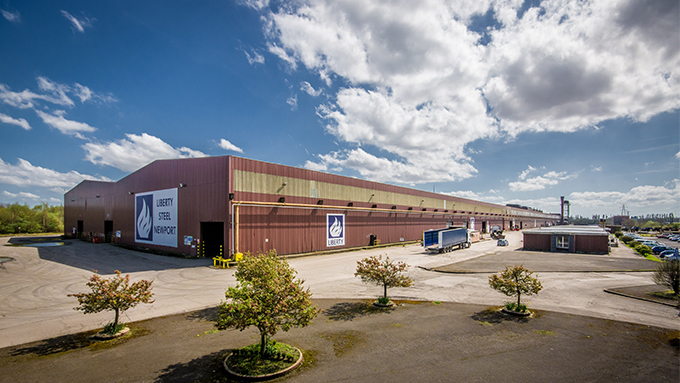Liberty Steel Group’s Galati integrated steelworks in Romania is to boost crude steel production by 50% this year to 3 million mt, up from around 2 million mt in 2020, the group said Aug.10.
As well as selling hot-rolled coil to the group’s Magona cold-rolling and galvanizing mill in Italy, which recently restarted, Galati supplies Liberty’s Liege-Dudelange works and a wide range of construction, marine, oil, gas and renewable energy customers across Romania, the Balkans and elsewhere in Europe, a Liberty Steel Group spokesperson said in an emailed statement.
Full crude steel capacity at Galati is 4 million mt/year although it was not announced when this production level will be reached. The works is progressing on a longer-term transformation plan involving improvements to existing infrastructure and product portfolio quality as well as initiatives to support its transformation into a carbon neutral supplier by 2030, the group said. The works was previously owned by ArcelorMittal until it was acquired by Liberty Steel Group in 2019.
Hydrogen-based plan
Galati will install a direct reduced iron (DRI) plant and two electric arc furnaces, the group announced last year. The DRI plant, with 2.5 million mt/year capacity, will initially use natural gas, later transitioning to hydrogen when this becomes more cost effective.
One of the EAFs will cast slabs for Galati’s plate mill and the other will be used for direct casting of hot-rolled coil. The EAFs will reduce CO2 emissions per metric ton of steel produced by up to 80% and emissions should fall close to zero once hydrogen is used in the DRI plant, it said.
Liberty Steel Group added that Galati’s progress towards the 2030 carbon neutrality target will be enhanced by a memorandum of understanding signed in July to create a Technical and Research Collaboration Framework based around use of hydrogen with partners including the Romanian Energy Centre and international engineering group MTAG Switzerland.
In an Aug. 10 results statement, Liberty Steel Group said that the Galati works had made “further commercial and financial progress” during Q2, as the group stabilizes after the collapse in March of Greensill Capital, the major financier of its parent company GFG Alliance.
Galati, the largest integrated steelmaker in Romania, “expects positive progress to continue into the second half,” according to the statement.
Galati’s Q2 EBITDA at RON 412 million ($98.2 million) was up 61% on the previous quarter and the best result since 2008, it said. Turnover in the quarter grew 37% to RON 2.4 billion, with shipments up 7% to around 566,000 mt in Q2, it said.
The financial performance has been boosted by multi-year highs in prices for HRC, due to strong demand as markets have recovered from COVID-19, amid product tightness.
S&P Global Platts assessed Northwest European hot-rolled coil down Eur6/mt to Eur1150/mt Aug. 9 ($1,351.36/mt) ex-works Ruhr. Mills were heard fully booked and hindered by operational issues because of flooding, maintenance and repairs, which are likely to extend lead times to later in 2022.
Ostrava increases output, UK reorganization
Also in Q2, the Liberty Ostrava steel business in the Czech Republic had its best production quarter since 2017, Liberty Steel Group said. Ostrava shipped more than 600,000 mt of steel products in the quarter, on a production almost 80% higher than in Q2 2020, when the sector was impacted by COVID-19.
Liberty Steel Group spokespersons did not immediately respond to questions Aug. 10 as to whether the plan to sell the UK’s Stocksbridge Specialty Steel works has been changed in the light of a recent reorganization. On Aug. 5 the group announced that following the introduction of a new Liberty Steel UK (LSUK) management team, LSUK is to become a 2 million mt/year producer of “green” steel with operations-focused units. The new management will oversee the separation of the Stocksbridge, Brinsworth Narrow Strip, and Performance Steel assets where production will be resumed in the short term, in a move to create a more sustainable long-term future for the assets, it said.
“Plans are being shared with unions and creditors for their input, including working with a leading strategic consultancy to validate plans,” the group said.
— Diana Kinch






